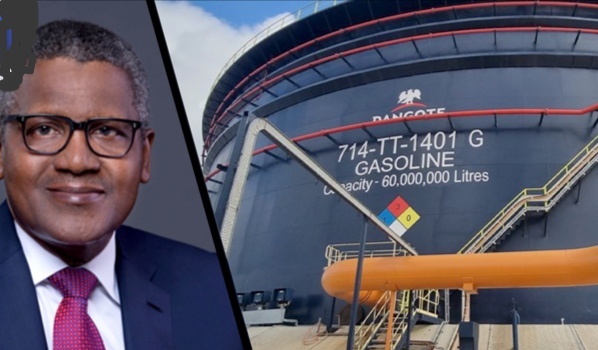Business
Dangote Refinery set to expand capacity to 1.4 million barrels per day

The Dangote Petroleum Refinery has announced an ambitious plan to expand its production capacity from 650,000 barrels per day (bpd) to a record-breaking 1.4 million bpd, positioning it as the largest refinery in the world upon completion.
This landmark announcement was made by the President of the Dangote Group, Alhaji Aliko Dangote, during a press briefing held in Lagos on Sunday.
According to Dangote, the expansion project is set to commence immediately and, when completed, will surpass India’s Jamnagar Refinery, which currently holds the global record for the largest refining facility.
READ ALSO: Petrol price set to drop as Dangote Refinery resumes supply to marketers
He emphasized that the upgrade will not only boost Nigeria’s refining capacity but also strengthen the country’s position as a key player in the global oil and gas industry.
“We are expanding the Dangote Petroleum Refinery from 650,000 barrels per day to 1.4 million barrels per day. Upon completion, this will make it the largest refinery in the world, surpassing the Jamnagar Refinery in India,” Dangote said.
Dangote explained that the expansion project would create about 65,000 jobs, 85 per cent of which would go to Nigerians.
He added that the refinery would upgrade its production to Euro VI fuel standards, aligning with the highest global environmental benchmarks.
“With this expansion, the refinery transitions from producing Euro V to Euro VI fuel standards, meeting the highest global environmental benchmarks,” he stated.
Dangote further revealed that power generation at the facility would be increased from 500 megawatts to 1,000 megawatts as part of the project.
He also announced plans to list the refinery on the Nigerian Stock Exchange in 2026, giving Nigerians an opportunity to become shareholders.
Dangote expressed appreciation to President Bola Tinubu for his continuous support of the refinery project, noting that the expansion was expected to be completed within three years.
“The expansion is expected to be completed in three years,” he said.





















